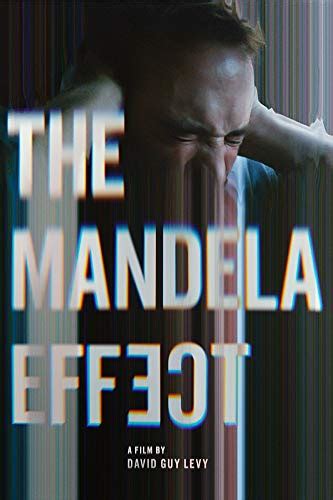The Mandela Effect

Description:
On the surface, a cautious systems analyst discovers his memories are shifting in impossible ways, hinting that alternate timelines may be bleeding into his reality. As his grip on the past loosens, he must confront whether his world is fixed or a fragile illusion shaped by collective recall, with unsettling clues, paranoia, and a twist that redefines truth. The Mandela Effect is a mind-bending sci-fi thriller about memory, perception, and the fragility of reality.Keywords:
Alternate Timeline, Science Fiction Thriller, Psychological Thriller, Parallel Universes, Memory ManipulationWhat are the Mandela effect examples?
The Mandela Effect refers to a phenomenon where a large group of people remembers an event or detail differently than how it occurred. In the movie "The Mandela Effect," several examples illustrate this concept, such as:
1. The Berenstain Bears vs. Berenstein Bears: Many remember the children's book series as "Berenstein," with an "e."
2. The Monopoly Man: People recall him having a monocle, though he never did.
3. "Luke, I am your father": Many misquote this iconic line from Star Wars; the actual line is "No, I am your father."
These examples highlight collective false memories.
What is the Mandela effect explained?
The Mandela Effect refers to a phenomenon where a large group of people remembers an event or detail differently than how it occurred. The term was coined by Fiona Broome after she discovered that many people, including herself, falsely remembered Nelson Mandela dying in prison in the 1980s. This collective misremembering often stems from the brain's tendency to create false memories or confabulations, leading to widespread misconceptions about facts, events, or cultural references. The movie "The Mandela Effect" explores these themes through a narrative involving a man whose life is affected by these altered memories.
What is the Mandela effect?
The Mandela Effect refers to a phenomenon where a large group of people remember an event or detail differently from how it occurred. The term was coined by Fiona Broome after she discovered that many people falsely remembered Nelson Mandela dying in prison in the 1980s. This collective misremembering can result from various factors, including cognitive biases, social influences, or the blending of memories. The concept is often explored in discussions about memory, perception, and the nature of reality, making it a popular topic in psychology and pop culture.
When did the Mandela effect begin?
The term "Mandela Effect" began in 2009, coined by Fiona Broome after she discovered that she, along with many others, falsely remembered Nelson Mandela dying in prison in the 1980s. This phenomenon highlights collective false memories, where groups of people recall events differently from reality. The concept gained popularity through discussions on internet forums and has since been used to explain various instances of shared misremembering in popular culture and history. The movie "The Mandela Effect," released in 2019, explores these themes further.
Explore More Categories:
Hollywood Reincarnation Unemployment Soccer Black Comedy Los Angeles Origin Multiculturalism Corporate Conspiracy Mutants Neon San Francisco Bomb Disposal Women S Baseball Doppelg Ngers Continuous Shot Language Live Performance Ohana Minimalism Lepidopterology American Culture Assassins Cybersecurity Explosions